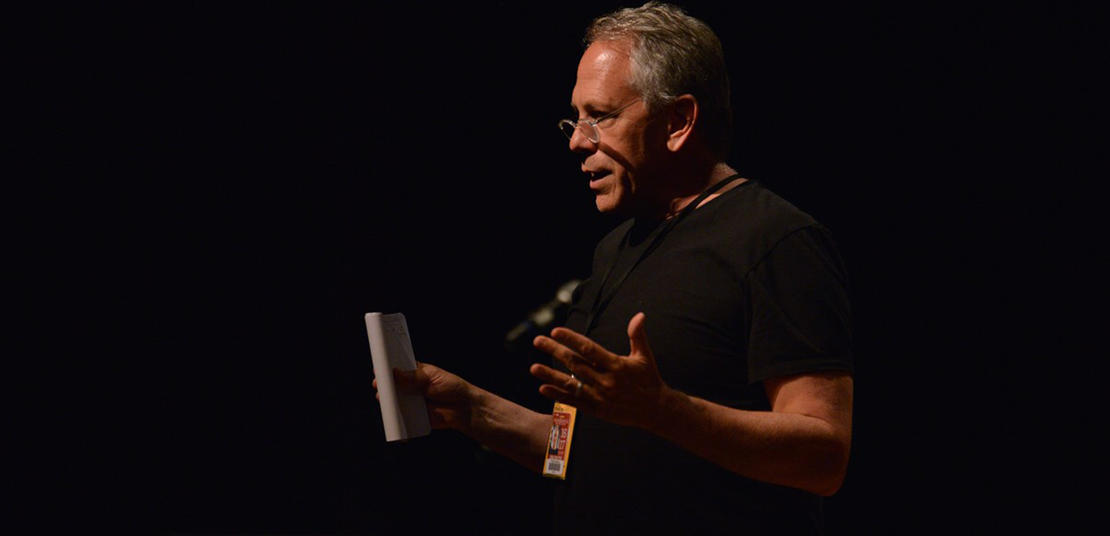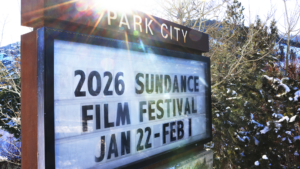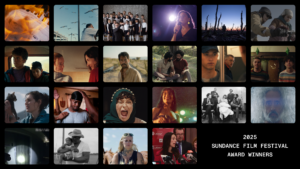Philip Himberg, Artistic Director of the Sundance Institute Theatre Program. © 2016 Sundance Institute | Photo by Brandon Cruz
Philip Himberg
“Democracy has to be born anew every generation, and education is its midwife.”
—John Dewey
In the wake of two corporations pulling their funding from the Public Theater’s free production of Shakespeare’s Julius Caesar, like many of my artist colleagues I have been pondering the grave resonances.
Let me be clear. Just as the First Amendment ostensibly protects our citizenry, and enables us all to say what we wish to say—in writing, in public, in our museums, on our stages, and in cinemas—this same amendment also protects private citizens and corporations to voice their objections publicly. Delta and Bank of America are protected by the very same right to determine how and when their money is spent; that is as it should be and is irrevocable.
What is potentially disturbing and indeed perilous is what underlies those company decisions, and the potential resonances and repercussions which threaten to erode democratic principles. Mostly I am perplexed by how a conversation about art—which demands nuance—interfaces with rhetoric that traffics in the absence of nuance and, in fact, celebrates circumvention of complexity and critical analysis. I am frozen by the idea that once corporate support of art caves to the will of loud voices protesting a work of art, we perpetuate a treacherous climate for our cultural community.
Shakespeare’s plays contain multifaceted layers of conversation, intricate plots, rich characters and language, and timeless themes. The lessons of Julius Caesar are not veiled. Caesar’s assassination takes place at the top of act 3, not even midway through Shakespeare’s five-act story. The dire consequences of this murder are significantly explored in the next 90 minutes of dramatic action, as the co-conspirators are rounded up or executed or commit suicide as a direct outcome of their violent act. Violence begets violence, and what might have been construed as noble aims by the resistance brings about more horror, more war, and an even stiffer rule of law.
The negative reaction to the Roman emperor’s demise (embodied by our current president in this rendering) as the central and only point of the play feels to me a possibly deliberate misinterpretation meant to skew public opinion, and it represents a symptom of a deeper issue in today’s America.
It reflects a leveraging of one theatrical moment, taken from its greater context to incite animus toward art itself, and it is a sign also of our nation’s current standard of “meaningful” dialogue—mirroring the sway of the all-powerful tweet, Instagram image, or Facebook post—which limits investigation, conversation, or analysis. Did I just imply that social media may not be our friend in this crisis? Yes. But that may be a symptom, not the root cause.
What is lost in the midst of labeling, name-calling, and insult is any opportunity to excavate shades of understanding; opportunities for healthy debate about varied points of view; and efforts to elucidate, illuminate, crystalize—to learn more. I wonder if a productive opportunity has been missed: instead of withdrawing support, what if sponsors imagined an inclusive audience conversation, a “theatrical town hall” (live and online) to bring diverse community together, to encourage open critical exchange—a revered right in a healthy democracy. Instead, we too often fall victim to a kind of mob mentality, which fuels rage and feeds toxic fuel into the fire of ignorance. We must choose not to pollute the skies of inquiry.
It is this spirit of inquiry which informs the work I do as a theatrical dramaturg, and roils beneath the surface of this dilemma. It harkens to each and every American’s access to a rigorous and well-rounded education: in the sciences, arts, and humanities. The life and blood of a healthy and always developing democracy is determined by the state of our educational system. Without a doubt, neither major political party—Republican or Democratic—has made its central focus the proper education of its young population. For our democracy to thrive, we require meaningful debate. We must educate a new generation to think carefully and critically and to appreciate nuance; the arts in particular provide a rich pathway for developing these skills.
I fear that withdrawal of corporate support for art deemed controversial or offensive, coupled with the threat of removing all federal support for the arts, is just the beginning of a campaign against freedom of expression in this nation. There are today groups of Americans who feel powerless, frightened, and in the crosshairs of harm. It is my feeling that artists may soon join the ranks of these at-risk communities. If we do not organize and act, artists must be prepared to join other targeted segments of Americans as disenfranchised and, in fact, endangered. We may need to be prepared for a return to the culture wars of the 1980s, when a few experimental artists were singled out for their creative statements and defunded by an offended Congress. But are we ready for an all-out attempt to stifle or ban art in our country?
That there is not an organized movement about this, and that there was no organized cry of support from the arts community for the Public Theater, is not a good sign. This must change and change fast. Perhaps we do not really feel the heat on our backs just yet. I beseech that we need to prepare.
Maybe the extraordinary work of ACT UP during the height of the AIDS crisis provides some direction. This all-inclusive organization—run by amateurs, not professional organizers—passionately understood that their very existence was at stake. Beautifully effective theatrical demonstrations and risky protests that endangered the well-being of individual participants made a difference. We need to reflect on that movement’s organization, its nimbleness to respond when things got bad, and figure out our own distinct way of making noise, making sense, and entreating the world to embrace a culture of open-mindedness and a hunger for investigation of the deepest meaning of things through the arts.
It all begs the question, will we embrace an extraordinary opportunity—as one of the world’s greatest democracies—to engage in a dynamic forum about big ideas, led in part by our artist community? Or will we become prey to meaningless jargon, that will surely infect more and more of our fellow Americans? Artists, whose visions have often led the way in dark times, must not be diminished, nor their multi-hued torches of light forever extinguished.




